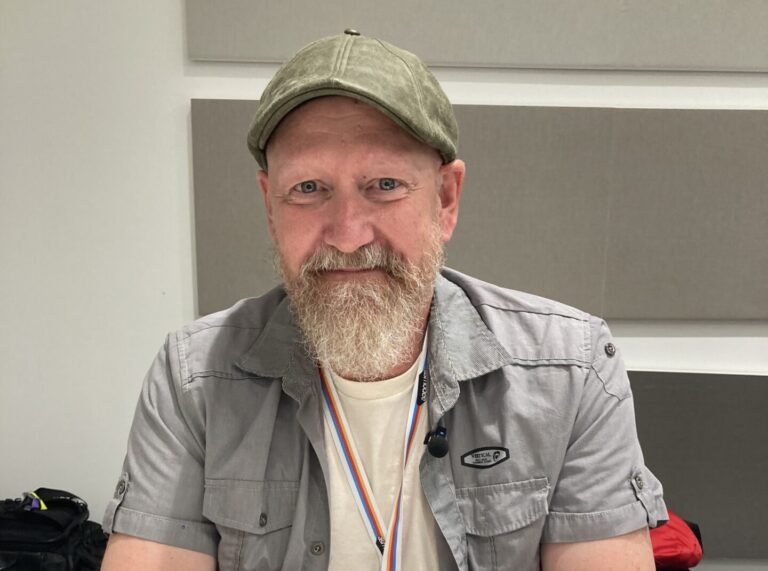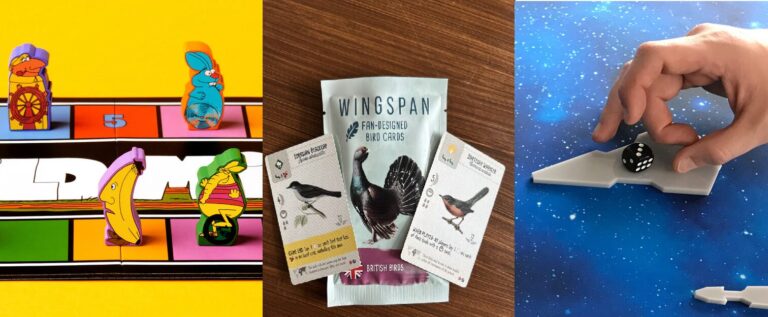
“We didn’t expect to find this dark underbelly of the game design industry”: Two seasoned board game designers highlight why a professional association is so badly needed
BoardGameWire spoke to a pair of long-time board game designers in the wake of the news that the designers of Wingspan, Space Cadets and Mind MGMT have teamed up to launch a professional organisation to fight on behalf of tabletop game designers.
The pair, who wished to remain anonymous for fears over their future careers, described a horror-show of interactions with publishers around contract law, overwork and unprofessional communication and attitudes – and underscore just how badly something like TTGDA is needed in the modern tabletop games industry.
When you put in more than you get out, you hit burnout. What you can guarantee is that this process of game publication will cost you. What you cannot guarantee is that you will reap any benefit. We have both been part of the BG design industry for about a decade. What we saw at the beginning was solely fun, fantastic games, our brains brimming with design ideas, and great people who became great friends.
We didn’t expect to find this dark underbelly of the game design industry. A series of painfully exhausting and draining circumstances and hopes dashed led to burnout. And from that burnout both of us spiralled into separate breakdowns. There is a tendency to blame oneself for all of it or to minimize one’s feelings. It has since become clear that it was caused by the imbalance of power between us as designers and the publishers we have worked with.
It is easy to value the dream of a published game over valuing oneself and mental health, and the effort exerted. That was our downfall, but it shouldn’t have had to be. The excitement publishers had about our games always felt like enough reason to be excited ourselves, but we began to recognize that there is a clock that starts ticking the moment there is enough interest to pursue your game. And no one knows when the time will be up.
The uncertainty is hard enough prior to signing a contract, but it is just that much harder to bear when that uncertainty continues after signing the contract. It is a torturous thing waiting for so long, knowing fully that disappointment is looming. At that point, the investment required is simply too high for the outcome, even a good outcome.
Our first ever pitch involved a publisher who was so interested in one of our designs that they sent us their email. We quickly emailed them and then heard nothing. We never received a response. A friend had the email of someone else at the company, so we took the leap. They were responsive. We met up with them at a convention and they flat out said they wanted the game.
They sent us a picture of the team playing it that evening. We were told a contract was coming on and off for 3 months. He ended up moving to a different position in the company, which led to the game being lumped in with all the new submissions. We waited another 3 months to finally hear a “No” even though we were positive it would be a “Yes.”
Having model contracts and contract reviews, to be provided by Tabletop Game Designers Association, will help designers avoid pitfalls and get a realistic read on royalties and so much more (royalties are a big deal, but there is so much more involved that matters as much or more). When it came time to sign a contract, we were usually so eager and ready to sign on the dotted line that it was hard to go through the legal jargon with a fine-tooth comb and really think things through. Having an objective and experienced eye on the contract before signing would have greatly benefited us.
There are so many passionate designers eagerly competing for the attention of a limited number of publishers whose eyes are bigger than their stomachs. With that same game from our first pitch, we found another publisher after another round of speed pitching. It got signed quickly with the hope of a quick turn-around on art and production. Turns out, we were not only the designers, but the project managers and the developers. We found ourselves being the ones asking for updates and being the ones to push things along. We felt the extreme weight of turning a passion project into a product.
This was the final straw that led to full burnout. The publisher generally approved of our decisions when we asked for their input. But we were paralyzed by the conflicting feedback because it was up to us to make the final calls. We felt that we had to consider ALL the things, which added greater stress and more time to the process. We also felt that we had a lack of the right testers. The publisher had no resources for us. We wanted less testing by designers and more of our audience, but we had no control over that.
We just had to hope that it would all turn out despite not having the perfect group of testers. When it came time to renegotiate the contract the publisher dropped the game with zero discussion rather than make a counter-offer to our requests. We are relieved that we had a kill clause that gave us something monetary as the contract ended, but we wish we had not settled on a lower amount than what we originally proposed.
Designers are expected to be professional with the many hats they wear. From our experience, most publishers have been very friendly, but do not have the same professionalism and dedication to the project as the designer. With one publisher there was immediate interest, even to the point of signing the game within the same week, but quickly we hit a point where the publisher was making changes to the game, and ignoring our input even though we knew the game better.
The changes they made against our advice resulted in a game that had a negative and lacklustre initial response, so the publisher pulled it. We had to ask if we could fix it, because the publisher had no plans to do so. We developed it for almost a year. At one point we asked the publisher what would happen if we couldn’t fix the problems. They let us know that if that were the case, they would give us the rights back.
There would be no help from them even though they caused the problem. Then, once we fixed things, the publisher kept delaying on making the changes, and finally by the time the game was ready to be made available, everyone had moved on. And then they forgot to pay us. We had to ask for payment.
We designed another game according to details that were discussed with that same publisher ahead of time. But once the initial version of the game was submitted to the publisher, most of the details that they asked for were the parts they had complaints about. It would have been a better game if the publisher had been more clear or less particular.
When a publisher drops a game (whether by voided contract or by being hands-off), it forces the designer to pick up the pieces. There are so many more risks for the designer. Publishers can be entertaining multiple designs at once and just drop whichever ones end up not suiting them, but designers cannot hedge their bets the same way by having their game with multiple publishers. The game is out of commission for the whole time the publisher is sitting on it. And often the publisher is in no rush.
In every one of these instances, having advocacy and dispute mediation with publishers would have been a game-changer, quite literally. Accountability for publishers is vital for the health and wellness of every individual in this industry, including the publishers themselves. We have always felt strongly that Cardboard Edison and the Tabletop Mentorship Program, to name a few, were a sign that things were improving.
Tabletop Game Designers Association is only adding more hope by existing. Knowing that the founders of TTGDA are seasoned and influential designers, who are more than capable of providing these services, excites us because they know from personal experience what improvements are needed. They care for and appreciate this industry and want to see it be better and do better. We can breathe easier knowing there is a brighter future ahead for those just starting out in this industry, not to mention those of us still here.







[…] spoke to a pair of long-time board game designers in the wake of the TTGDA announcement, who described a horror-show of interactions with publishers around contract law, overwork and […]
[…] BoardGameWire spoke to a pair of long-time board game designers in the wake of the initial TTGDA announcement last November, who described a horror-show of interactions with publishers around contract law, overwork and unprofessional communication and attitudes. […]